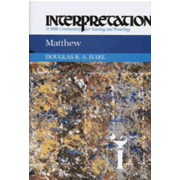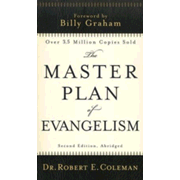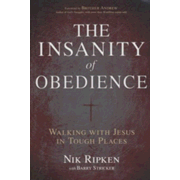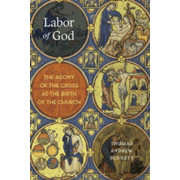 WE READ from the Gospel According to Matthew for the First
Sunday in Lent. In this lesson we are taught by the author of the writing that just as the Son of God builds
our faith, there are powers in this life that would challenge our earthly walk.
WE READ from the Gospel According to Matthew for the First
Sunday in Lent. In this lesson we are taught by the author of the writing that just as the Son of God builds
our faith, there are powers in this life that would challenge our earthly walk.
Then Jesus was led up
by the Spirit into the wilderness to be tempted by the devil. And he fasted
forty days and forty nights, and afterward he was hungry. And the tempter came
and said to him, "If you are the Son of God, command these stones to
become loaves of bread."
But he answered, "It is written, 'Man
shall not live by bread alone, but by every word that proceeds from the mouth
of God.'"
Then the devil took him to the holy city, and
set him on the pinnacle of the temple, and said to him, "If you are the
Son of God, throw yourself down; for it is written, 'He will give his angels
charge of you,' and 'On their hands they will bear you up, lest you strike your
foot against a stone.'"
Jesus said to him, "Again it is written,
'You shall not tempt the Lord your God.'"
Again, the devil took him to a very high
mountain, and showed him all the kingdoms of the world and the glory of them;
and he said to him, "All these I will give you, if you will fall down and
worship me."
Then Jesus said to him, "Begone, Satan!
for it is written, 'You shall worship the Lord your God and him only shall you
serve.'"
Then the devil left him, and behold, angels
came and ministered to him.
(Matthew 4:1-11)
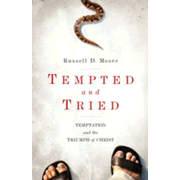 |
Tempted and Tried: Temptation and the Triumph of Christ - eBook By Russell D Moore |
Led Beyond Temptations
A reading previously presented in Matthew stated that Jesus
was baptized by John, and was declared by the Spirit to be the Son of God. As that scene
closed, in continuing the faith witness... the next scene found our Lord being driven
into the wilderness by that same Holy Spirit. Jesus went there for prayer and fasting. We emphasize the
word “led” used in today's reading (from the Greek- anechthe). This use attests
that Jesus went not by independent action, but we may considered him fully as a human
being directed by another entity… i.e. the power of the Holy Spirit!
Originally the
witness in the earlier written gospel by Mark’s community related the wilderness trials only briefly. Only two verses told of the time
spent there (see Mark 1:12-13). Why
is this so, we may ask? I consider that either
the knowledge of what had occurred in the wilderness was not fully known
by the
community of Mark, or the story was not relevant to the primary theme of the
writer. Also, we may entertain that Mark simply omitted the account due to the shortness of that earlier
gospel
scroll. The incident may have simply been relinquished to the cutting
room floor.
We see in comparative gospel research,
that Matthew agrees greatly with the Lukan account (Luke 4:1-13). We may subsequently conclude that because Mark was very brief... and both later-written gospels
related the event with greater detail… the information found in the later gospel witnesses
came from a separate, common revealed source. This means that these two
witnesses offered the story from that second source... so to increase the guidance
needed in the respective communities of Matthew and Luke.
This being true, we can focus upon
this needed guidance and ask certain questions. First, “Who was physically there in the
wilderness to record what happened?” As we read, we see that only
Jesus was led by the Holy Spirit into the countryside. The Devil challenged him there.
Given this as fact, we further ask, "If they were the only ones there, how then did the Church receive the story in order to write it down?" It is unlikely that our Lord's adversary would highlight the encounter, since that power was cast successfully aside. Hence we must conclude that the story came to the early Church directly from Jesus. If so, the account was told to the Church later by a disciple through the power of the Holy Spirit, in order to accomplish a certain purpose. I believe that purpose was to strengthen those who were part of the early Church.
Given this as fact, we further ask, "If they were the only ones there, how then did the Church receive the story in order to write it down?" It is unlikely that our Lord's adversary would highlight the encounter, since that power was cast successfully aside. Hence we must conclude that the story came to the early Church directly from Jesus. If so, the account was told to the Church later by a disciple through the power of the Holy Spirit, in order to accomplish a certain purpose. I believe that purpose was to strengthen those who were part of the early Church.
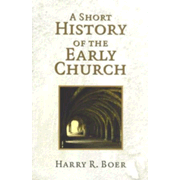 |
A Short History of the Early Church By Harry Boer / Wm. B. Eerdmans Publishing Co. For readers who want a brief yet reliable introduction to the history of the early church as well as for those who are looking for a quick review of the period, this volume furnishes a concise overview of the key events, figures, controversies, and councils essential for a proper understanding of the first seven centuries of the Christian church. Harry R. Boer provides background on the world into which the church was born, surveys the life of the church from the ministry of Jesus until 600 A.D., examines the effects of persecution and heresy on the church, explains the role of several key church leaders, and focuses specifically on the church's ongoing struggle to formulate proper doctrines of the Trinity and of Christ. Each chapter is clearly outlined and concludes with several discussion questions that enhance the book's use as a study guide for church groups or as a text in courses on early church history. |
We know that Christians began to struggle
mightily under severe persecutions in the unfolding decades of the first
century. Thus
when we consider the source of the fully developed story, from a reconstructed writing that we now call the lost “Q” document… we find its unfolding was likely developed very early. The time of origination from Jesus first ministry (c. 30 A.D.), and its being told further during following decades... brings the date to be in concert with the claimed time of Mark's writing (c.68-70 A.D.). Thus, “Q”
was subsequently added later to the
contents of the other two gospels... Matthew and Luke, which were written down in final form by about 85 A.D. Thus the account is
presented as a story directly stemming from Jesus teachings. The account found its way into the two synoptic gospels.
If we accept
this premise and outcome, using form criticism we can now note that this text seems to be a stand-alone
story skillfully woven into that earlier document.
For this reason, we may ask... “What were the Matthean and Lukan communities
encountering at the time… that the Markan community was not contending with in earlier
days? What spurred the inclusion of this expanded narrative with the account from Mark?
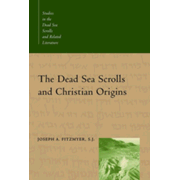 |
The Dead Sea Scrolls and Christian Origins By Joseph A. Fitzmyer |
I consider that since
the later gospels related increased tensions between Christians and the firmly
entrenched traditional Judaic faith expressions, we may conclude that much greater isolation was occurring for the early Church. Also, persecutions had been pressing hard upon the Christian communities. However, being those who certainly were convicted by the Law of Moses, but yet pardoned for the sake
of Jesus Christ… the late first century Christians were provided by Jesus with a new law! That new law set them free for service in the growth of the kingdom. Therefore the wilderness story was written as a
new guidance to help those communities. The teaching we find here was a method for their dealing with both
the historically entrenched Jews and the Gentile. Both worlds were aflame with evil. The lesson speaks
also across several millenia to us as we live in a world that is becoming even more hostile to our salvation and ministry message.
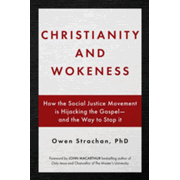 |
Christianity and Wokeness By Owen Strachan |
Lenten Discipline…
Our path as Christians, like that of this faithful ancestral community,
should unfold as we are led by the Spirit. We need to go forward just as our Lord was led into that
wilderness. Consequently, we are especially called by the Spirit to engage in prayer and
fasting during the coming forty days of Lent. By doing these ancient rituals we shall gather discipline by restraint, through such as this gospel's message which reminds of our Lord’s
tribulations in the wilderness.
Remember! Word through the power of the Spirit strengthen us. Where Jesus was tempted by Satan; so we too are also tempted. The words that Jesus spoke in answer to evil are a prescription given that strips us of fear. They strengthen our own resolve as we work plodding through this often hostile, modern world. Therefore, in the challenges of the coming Lenten season we know surely Satan shall whisper again to us that all is vanity. We shall be tempted to fall away and lessen our seriousness and witness. Consequently, know that to ward off these attacks, only prayer, discipline and a knowledge of Holy Scripture will suffice to strengthen and guide us.
Remember! Word through the power of the Spirit strengthen us. Where Jesus was tempted by Satan; so we too are also tempted. The words that Jesus spoke in answer to evil are a prescription given that strips us of fear. They strengthen our own resolve as we work plodding through this often hostile, modern world. Therefore, in the challenges of the coming Lenten season we know surely Satan shall whisper again to us that all is vanity. We shall be tempted to fall away and lessen our seriousness and witness. Consequently, know that to ward off these attacks, only prayer, discipline and a knowledge of Holy Scripture will suffice to strengthen and guide us.
Note that we have been given an
advantage! The community of blessed Matthew did not have all that we have. The early Church
did not have the New Testament. They were writing it! So blessed ones, note that
our Lord quoted from scripture that which was available during his time upon earth. And indeed we are called to do so as well. However, now we have a far wider foundation
than our historical predecessors… thus as Jesus prophesied we may be empowered into the doing of
even greater things! We can cite as witness not only from the Law and prophets,
but also from the Gospels and the letters preserved from the early Church. With this great storehouse of God’s
Word provided, we most certainly speak of Jesus Christ with great resolve.
Note that we are called as the
Church to witness in the world, and in this God shall empower and defend us. As we tread forward in witness this season, know by the Spirit’s revelation that we are not
giving in to the temptations of building our world in our own sinful image. We are
brought safely down from that dangerous precipice. We are kept from taking that road paved into hell laid out by the
luring, undulating switchbacks of social acceptance. Through the power of the Holy Spirit, we have our feet firmly planted on solid
biblical ground. Temptations shall leave. Messengers of God shall minister to
us. Let us be guided only by scripture rightly interpreted and proclaimed. Thanks be
to God!


